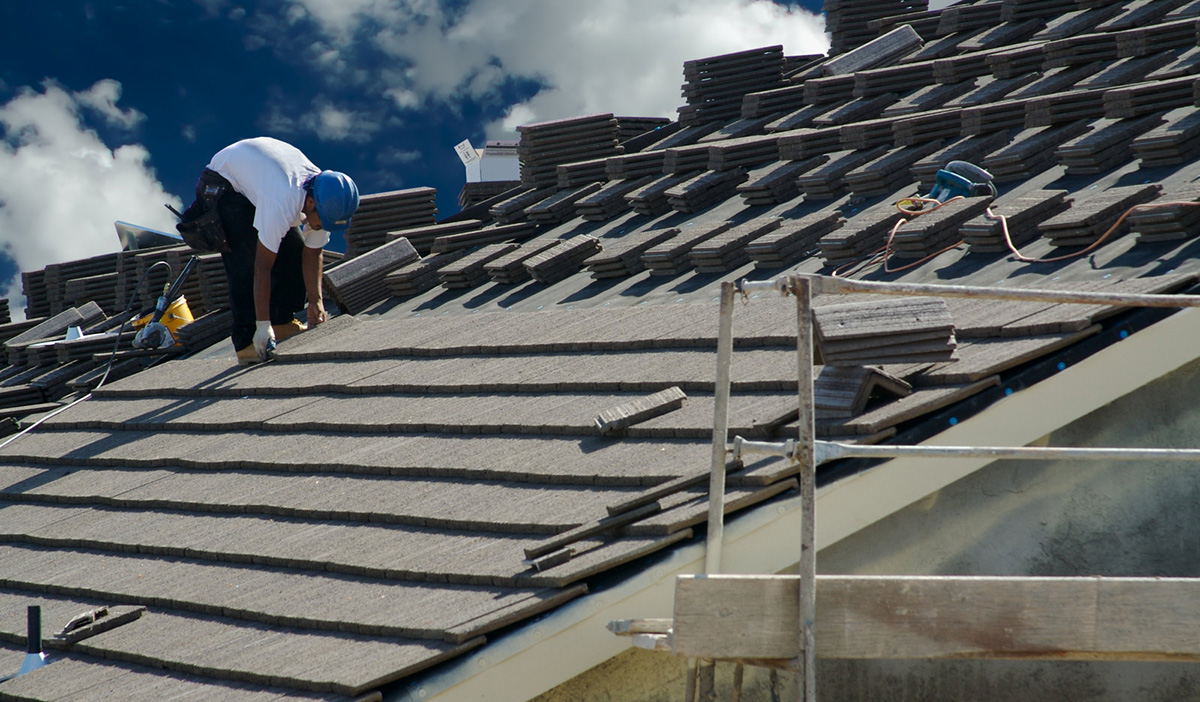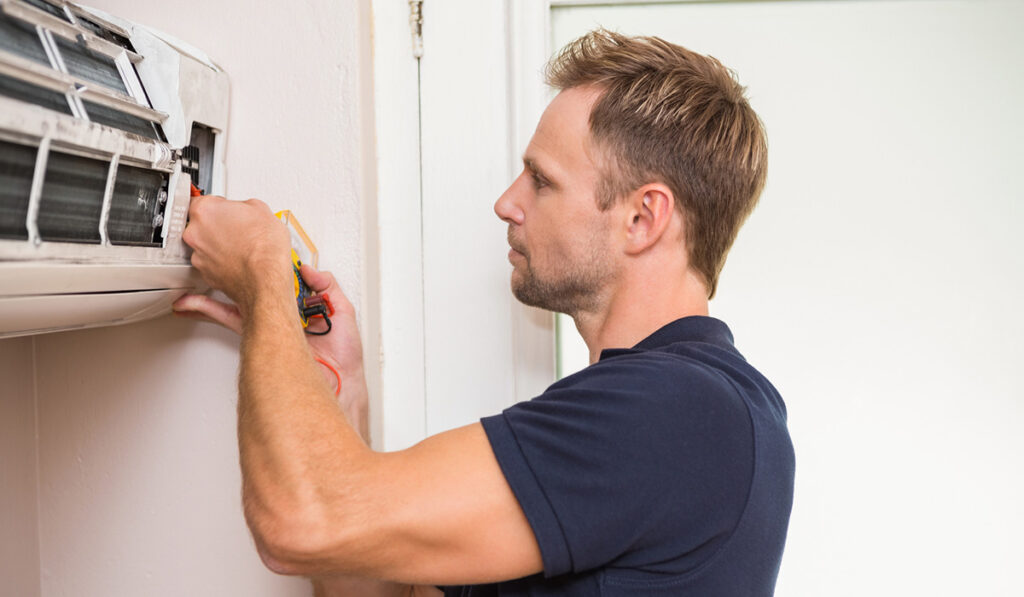
A Guide to South Carolina Workers’ Compensation for Roofers
Understand your legal options for recovering compensation after a roofing injury
The roofing industry in South Carolina is not just surviving; it’s thriving. As the state continues to grow, so does the demand for skilled roofers who can navigate both residential and commercial projects. In fact, as of 2018, South Carolina was home to approximately 1,700 roofers, a testament to the strength and resilience of the sector in the Palmetto State.
Unfortunately, however, roofing is a dangerous job, fraught with risks that range from falls and electrical shocks to burns and heat-related illnesses. Given these risks, it’s crucial for roofers to understand if they’re classified as employees since that distinction makes them eligible for workers’ compensation benefits in the event of an on-the-job injury.
This article will explain the difference between an employee and an independent contractor and help you understand your legal rights after a roofing accident.
Roofing facts and statistics
Based on 2016 data from the U.S. Bureau of Labor Statistics (BLS), roofers had the highest rates of nonfatal falls to a lower level, followed by painters, construction workers, and carpenters.
Full-year fall data for roofers:
- Rate per 10,000 full-time workers: 86.9
- Falls to a lower level: 840
- Median days away from work: 20
The annual fall rate for roofers greatly exceeds the fall rate for all workers combined, which was only 5.1 cases per 10,000 full-time workers in the same period.
According to the Centers for Disease Control and Prevention (CDC), roofers also have the highest risk of fatal falls, with a rate of 36 deaths per 100,000 full-time employees between 2011 and 2017—a rate that’s 10 times greater than all other construction occupations combined.
That’s, in part, because walking on sloped roofs reduces stability, increases sway, and alters body angles, increasing the risk of falling.
Common injuries for roofers
Roofing is undoubtedly one of the more hazardous occupations in the construction industry, and it comes with a unique set of risks that include the following:
- Broken bones, spinal cord injuries, and brain injuries. Roofers often sustain these injuries from work-related falls when they slip or lose balance, frequently due to uneven or slippery surfaces or a lack of proper fall protection equipment.
- Eye injuries. Flying debris, splinters or nails can lead to eye injuries, particularly when safety eyewear is not used.
- Cuts and abrasions. These injuries usually occur from handling sharp tools or materials, such as metal flashing or shingles, without adequate protection.
- Strains and sprains. Roofers can suffer strains, sprains and other overexertion injuries through heavy lifting or repetitive motion, often exacerbated by awkward working positions on roofs.
- Heat stress. Working under the sun for extended periods without proper hydration or breaks can lead to heat-related illnesses like heat exhaustion or heat stroke.
- Hearing loss. Roofers may experience hearing loss due to prolonged exposure to loud machinery and tools, especially without adequate hearing protection.
- Electrical shock. Coming into contact with overhead power lines or using improperly grounded electrical equipment can result in electrical shocks that lead to organ damage and cardiac arrest.
- Burns. Hot tar and asphalt used in some roofing processes can cause severe burns if proper safety measures aren’t followed.
- Lung problems and diseases. Handling roofing materials containing volatile organic compounds (VOCs) or other hazardous chemicals without appropriate protective equipment can result in chemical exposure that leads to respiratory issues like asthma and cancer over time.
In the news:
Roofing fatality in North Carolina
A 36-year-old roofer named Miguel Trinidad Delgado died after falling off the Morehead City Library in North Carolina on July 27, 2023. Delgado was employed by A-D’s Metal Roofing Co., which had recently started a roof repair project at the library.
Following the incident, the library closed for the day, and the Occupational Safety and Health (OSH) Division of North Carolina’s Department of Labor initiated an investigation, which could take up to 6 months to complete. The investigation will include a site visit, interviews with co-workers, and documentation of possible safety violations. Delgado was pronounced dead at Carteret General Hospital, and the company has not yet responded to requests for comment.
Who qualifies for workers’ comp benefits in South Carolina?
In South Carolina, workers’ compensation provides benefits to employees who sustain injuries or illnesses at work. Most South Carolina employers with 4 or more employees must carry workers’ compensation insurance.
Workers eligible for benefits include full- and part-time employees. Some workers, including independent contractors, domestic workers and agricultural workers, are not eligible for coverage under workers’ compensation.
Injuries that result from one-time accidents and occupational diseases (like carpal tunnel syndrome and tendonitis) that occur gradually are both covered under workers’ comp as long as they’re a direct result of the worker’s job.
Generally speaking, injuries resulting from commuting to and from work are not covered unless the employee was involved in a work-related task during the commute.
Know Your Rights and Responsibilities:
SC Workers’ Compensation Eligibility
Learn about the key factors affecting workers’ comp eligibility, including employee status, the nature of the injury or illness, and reporting and filing deadlines.
What if the accident was my fault?
To qualify for benefits, injured workers don’t need to prove fault. In fact, in most cases, eligible employees qualify for benefits even if they’re responsible for their injury.
This is because the goal of workers’ comp insurance is to provide timely, essential benefits to injured workers without requiring them to prove fault or negligence, regardless of the circumstances surrounding their injury.
However, in exchange for this no-fault system, workers who accept workers’ comp benefits give up their right to sue their employer through a personal injury lawsuit.
What workers’ comp benefits are injured workers entitled to?
Injured workers in South Carolina are entitled to a few different types of workers’ compensation benefits, which may include the following:
- Medical expenses. Coverage for necessary medical treatment, including doctor visits, hospitalization, surgeries, medications, physical therapy, and medical supplies.
- Wage replacement. Compensation for part of lost wages due to temporary or permanent disability, which is typically two-thirds of the worker’s average weekly wage.
- Permanent disability benefits. If the injury results in a permanent impairment, workers may receive benefits based on the extent of the disability.
- Death benefits. Funeral expenses of up to $2,500 and two-thirds of weekly wages for 500 weeks for dependents of a worker who dies from a work-related injury or illness.
What steps do injured workers need to take to file a workers’ comp claim in South Carolina?
Your employer is responsible for filing your workers’ comp claim after they receive notice of your injury, but it’s crucial that you take the following steps to prevent a denied claim:
- Seek medical attention. This should be done as soon as possible, and you should also be sure to mention that your injury occurred at work. Please note that the healthcare provider you see must be approved by your employer, except for emergency care.
- Notify your employer promptly about the injury or illness. This must be done within 90 days of the event or discovery of the illness or disease.
- Contact an attorney. If your claim is denied or your employer refuses to file one, contact an experienced workers’ compensation attorney for help with filing or appealing your claim.
What factors are used in South Carolina to determine if a worker is an employee vs. independent contractor?
In South Carolina, a 4-factor model is used to determine worker classification. The factors include an employer’s:
- Right to exercise control
- Furnishing of equipment
- Method of payment
- Right to fire
If the employer controls how the worker does his job duties, provides equipment, pays based on time, and has the right to fire, it suggests an employee relationship.
By contrast, independent contractors:
- Have autonomy in how they perform their work
- Use their own tools
- Often receive project-based payments
- Typically have specific termination clauses in their contracts
South Carolina courts weigh all factors in deciding a worker’s classification, and even small details like requiring workers to wear branded attire can impact the decision. Accurate worker classification is essential for ensuring appropriate compensation after an injury, so if you think you’ve been wrongly classified as an independent contractor, reach out to an experienced work injury attorney for help.
Compensation for SC Independent Contractors After a Work Injury
Learn about your legal rights as an independent contractor after an injury at work.
What legal options do roofers have if they’re injured while working as an independent contractor?
There are several legal avenues that injured independent contractor roofers might explore to receive compensation for their injuries. It’s important to consult with a work injury attorney for advice tailored to your specific situation, but here are some general options:
- Negligence claims. Independent contractors who are injured on the job may be able to file a personal injury lawsuit against the party whose negligence caused their injury. This could be the homeowner, the employer, a third-party contractor, or even a subcontractor.
- Premises liability. If the injury was due to unsafe conditions on the property where the work was being performed, a premises liability claim could be pursued against the property owner.
- Product liability. If the injury was caused by a defective tool or material, the manufacturer might be liable.
- Contractual remedies. If there was a written or verbal contract that outlines safety procedures and responsibilities, and the other party failed to adhere to those, the injured roofer might have a contractual basis for a claim.
- General liability insurance. The person or company that hired the independent contractor might have general liability insurance that covers injuries sustained on their property. In such cases, a claim could be filed against that policy.
Because laws and regulations vary by jurisdiction and specific case details, it’s crucial for injured independent contractor roofers to consult with a work injury lawyer to explore their options.
What should a roofer do after an injury if they think they’ve been misclassified as an independent contractor?
To be safe, a roofer who believes they’ve been wrongly classified as an independent contractor should follow the same general steps that they would follow if they were injured as an employee. This includes seeking medical care and notifying their employer of their injury.
Additionally, they should preserve evidence of the incident by taking photographs, obtaining witness statements, and keeping copies of medical records and bills.
They should also involve a work injury attorney as soon as possible for help with the following:
- Review employment contract. An attorney can carefully review any employment contracts or agreements that detail the nature of the employment relationship.
- Evaluate employment status. Legal counsel can help evaluate whether the nature of the work relationship fits the criteria of an employee under state and federal guidelines.
- Challenge employment status. If an attorney determines a worker has been misclassified, they can file a formal complaint or lawsuit challenging the employment classification.
- Pursue back pay and benefits. If they’re successful in reclassifying the worker’s employment status, the worker may be entitled to back pay for benefits like overtime, health insurance, and workers’ compensation.
Contact an experienced Columbia work injury attorney for help with your roofing injury
If you’ve been injured in a roofing accident as an employee or independent contractor in South Carolina, contact the experienced work injury attorneys at Smith, Born, Leventis, Taylor & Vega. We strongly believe that every worker is entitled to a safe work environment, and when accidents occur, you shouldn’t have to worry about how you’re going to afford your medical care or pay your bills.
That’s why our Columbia workers’ compensation attorneys offer free, no-obligation consultations to give you the help and information you need to get back on the road to recovery. Our law firm specializes in both workers’ compensation cases and personal injury lawsuits, so we can help you recover compensation, regardless of your employee classification.
Contact us today to learn more about your legal options.
How Might a Waiver of Subrogation Affect my SC Workers’ Comp Claim?
Learn how a waiver of subrogation can impact workers’ comp benefits after an injury so you can maximize your compensation in Columbia.



